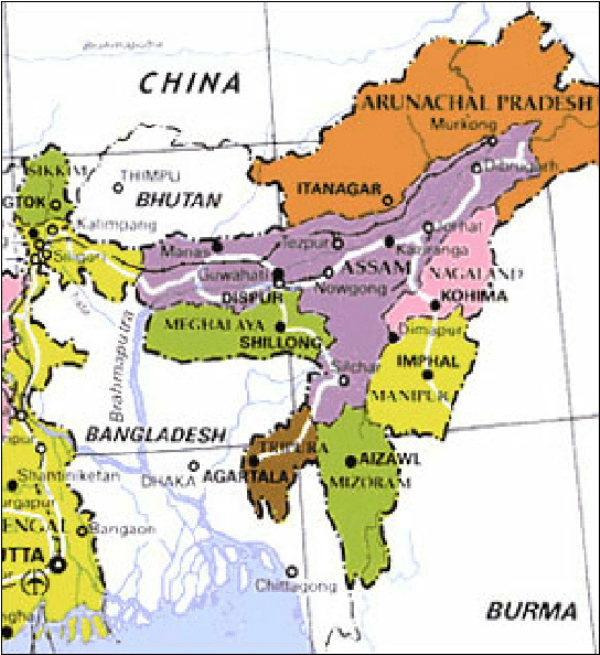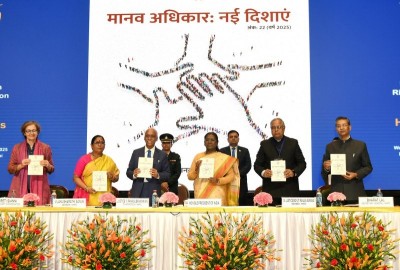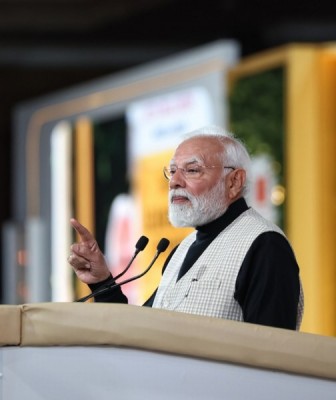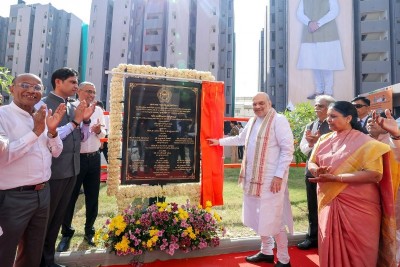
Need for policy framework in shifting cultivation in NE: NITI Aayog member
Guwahati, Jun 14 (IBNS): NITI Aayog member VK Saraswat on Friday said that there is a need for a policy framework to manage the transitions in shifting cultivation in Northeast India.
This policy need was underlined by the member of the NITI Aayog in his inaugural address at the International Symposium on 'Transitioning Shifting Cultivation to Climate-Resilient Farming Systems in South and Southeast Asia' that concluded in Guwahati on Friday.
Saraswat also cautioned against a narrow sectoral approach.
The transitions must be enabled by research and development that is contextual, including technology for agriculture on slopes, and implemented by national, state and farmers’ groups working together.
“Transitions in shifting cultivation should not lead to food and nutritional insecurity,” he warned, referring to the loss of several varieties of food crops from shifting cultivation landscapes in the transition to cash cropping over the last few decades.
Regarding the critical issue of tenure and access to land, he suggested that shifting cultivation communities could explore the cooperative farming model of the Israeli kibbutz.
He also called for greater international cooperation and south-south cooperation for sharing knowledge and experiences related to managing transitions, especially from Southeast Asia. These experiences and inputs could inform the proposed National Mission on Shifting Cultivation in India, he added.
In his welcome address, Eklabya Sharma, Deputy Director General, ICIMOD, highlighted the need to preserve the rich agrobiodiversity to improve food and nutrition security in shifting cultivation landscapes.
“The Hindu Kush Himalaya Assessment Report has highlighted the scale of food insecurity, malnutrition and stunting in the Hindu Kush Himalaya. It also warns us that the HKH will warm more even if global temperature rise is limited to 1.5 degrees. We need to preserve the biological diversity in these landscapes to manage the transition to climate-resilient agriculture," Eklabya Sharma said.
Rasha Omar, Country Representative, Asia and the Pacific Division, International Fund for Agricultural Development (IFAD), said that it is important to address the ecological, economic and demographic stresses in shifting cultivation areas in Northeast India. This development response must incorporate farmer innovations and the experience of various agencies, balance livelihood needs and community aspirations, and ensure that ecosystem services to downstream areas are sustained.
“Transition is a generational project and needs a people-centric approach. It also needs a different policy and regulatory framework, different from the one for settled agriculture,” she said.
Siddhanta Das, Director General and Special Secretary, Ministry of Environment, Forest, and Climate Change (MoEF&CC), Government of India, said that if shifting cultivation was to be made sustainable, there should be a shift in focus from trees and forests to soil conservation on slopes. “In the context of climate change, soils offer the largest opportunity for carbon sequestration, much larger than regenerating forests.”
WR Reddy, Director of the National Institute for Rural Development and Panchayat Raj (NIRDPR), said that the data on the area under shifting agriculture and households involved in the practice is still a matter of conjecture. NIRD is involved in a project to quantify the area and locate households in three districts, geotagging shifting cultivation patches and homes and observing the changes and trends. “Such information can help in developing and monitoring specific, focused interventions for sustainable agriculture interventions in these areas,” he said.
Dhrupad Choudhury from ICIMOD said that the symposium was not meant to revisit the debate over whether shifting cultivation was good or bad. “We are here to discuss the second generation issues that have emerged in recent years. These relate to the loss of food and dietary diversity; the expansion of plantations and reduction of forests, leading to loss of ecosystem services – soil fertility, carbon sequestration and hydrological services; the change from common property to private property regimes, leading to landlessness and poverty; and, access to programmes, technologies and credit for shifting cultivators.”
Academics, development practitioners and government officials from Bangladesh, India, Indonesia, Lao PDR, Myanmar, Nepal and Vietnam shared their experience of transformations in shifting agriculture. There was general consensus on the need to develop a community of practice for more exchange of good practices related to livelihoods, biodiversity conservation and management, institutional arrangements, and tenurial rights. For government and development agencies working on this subject, the deliberations could help shape future programmes to address these issues.
(By Hemanta Kumar Nath, Guwahati)
Image: Google Maps
Support Our Journalism
We cannot do without you.. your contribution supports unbiased journalism
IBNS is not driven by any ism- not wokeism, not racism, not skewed secularism, not hyper right-wing or left liberal ideals, nor by any hardline religious beliefs or hyper nationalism. We want to serve you good old objective news, as they are. We do not judge or preach. We let people decide for themselves. We only try to present factual and well-sourced news.







